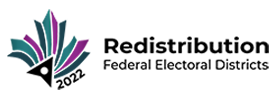Comment 32 (11 August 2022) – comments and feedback
Back to all comments and feedback from the public
The New Brunswick Coalition of Persons with Disabilities (NBCPD)
Shelley D. Petit, Chair
Subject: Public Hearing Participation from Shelley D Petit
How some of these changes could/will negatively affect Persons with disabilities and our right to be democratically involved, to work with candidates, to meet with them and to vote.
PowerPoint presentation made by Shelley Petit, Chair of the NBCPD, at the virtual hearing of 29 September 2022
About Us
- Formed in 2020 during the pandemic by two persons with disabilities (PWDs)
- Coalition of PWD for PWD, their families and allies
- 26.7% (2015) people over 15-NB
- We tend to work more as a grassroots organization
- We have over 600 followers on Facebook, a little over 120 registered members
- We work with various groups in NB as well as DWP, politicians, and advocates
This Is What Most Associate With a Disability
The slide shows images of the disabled in wheelchairs, the blind, and those missing limbs.
Invisible Disabilities
- Unfortunately, this common vision does not include the 70% who have invisible disabilities.
Inclusive Society
- We normally say that building an inclusive and vibrant democracy solely depends on the active engagement of all citizens
- The words that we say and the reality that we see around us don't correlate
- PWDs are usually treated as second-class citizens, hence their rights to full participation in political and electoral processes are being compromised.
- They are considered as if they are incapable of contributing to their society and unable to have active roles in any aspect of life. This must change in Canada – and this is one way to do so.
Things That Must Be Considered
- Prepare the separate data of registered PWDs to facilitate them accordingly in next upcoming elections and look at where they live to help determine if next boundary lines will hamper their ability to participate.
- The gross lack of transit in NB, especially in the 40% rural population makes voting difficult- when boundaries are well known.
Points to consider when creating new boundaries- from our perspective
- Democratic right to vote: boundary changes must keep in mind our ability to get places, to speak with candidates.
- Voting station placement: with new ridings comes new places for voting. As it is too many polling stations in the past have been inaccessible (physicality of building, transit, etc.)
- Changes in long set boundaries effects on neurodiverse, blind: When you learn specific routines to survive and then they are changed they often become inaccessible.
- Do not simply say mail in ballot.
